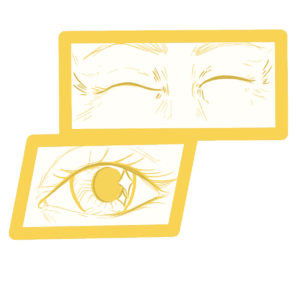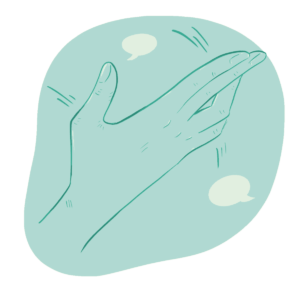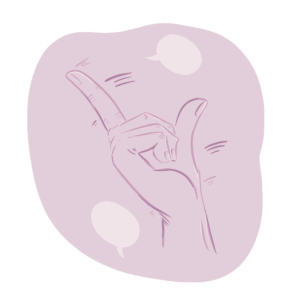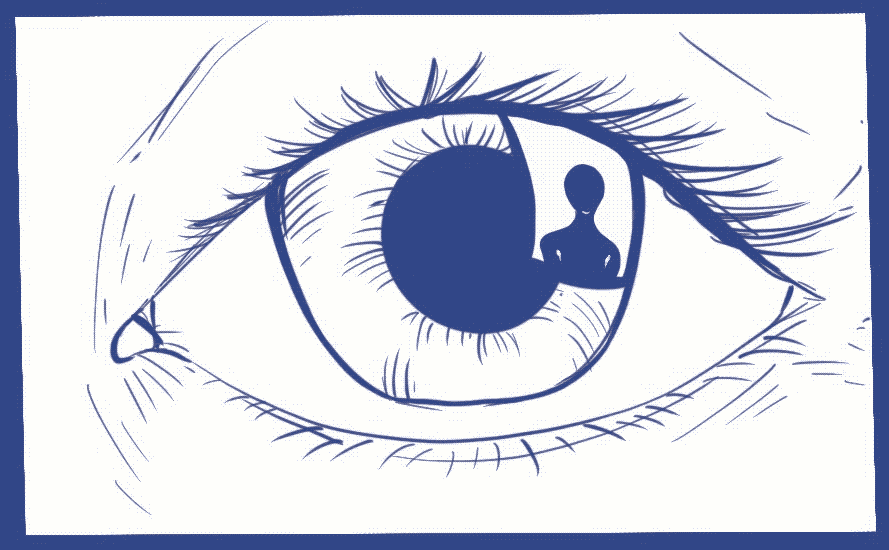The power of conversation, as a radical form of connection, isn’t usually at the forefront of my mind as I chat with people throughout my day. And yet, I’m sure we can all recall the feeling of a conversation generating a peculiar sense of monumental importance. Perhaps you might think of a time where, unexpectedly, small talk with a stranger ignites an instant mutual spark. Soon you find yourselves losing track of time as the laughter and conversation flows — and you leave feeling light, astonished that you’ve only just met this person. Perhaps you felt this special feeling during a late night conversation with a friend, words heavy with vulnerability and trust, and as you listen you are acutely aware of the significance of the moment. Perhaps it came about from a casual chat where you found yourself deeply inspired and illuminated by the perspective of another, or alternatively, you could see the impact of your words brighten someone’s eyes as you give advice or share a story. Such moments remind us of how crucial conversation is to connection, to growth and love.
Podcasting can capture this impact — packaged in an accessible and transmissible format. The ‘Love in Public’ podcast, hosted by Abril Soewarso-Rivera, is guided by an underlying ethos that encourages empathetic listening to bridge social divides. Each episode brings on a guest to share stories and expertise within the broad guidelines of the season’s theme. Season one centered the ‘Ivory Tower,’ exploring how marginalized groups can feel unwelcome within the academic space. Abril comments that “there is this unspoken hostility that can come up for BIPOC individuals,” leading her to focus on themes such as imposter syndrome, mentorship, and systemic barriers that can exist for people of colour. Carrying through a commitment to inclusion and exploring self-expression, the theme for season two of ‘Love in Public’ is ‘Show and Tell,’ which will feature a diverse range of art and creatives. Recently released, the season aims to expand our definition of what a ‘creative’ looks like, and to explore how art is created in response to our changing world. With such an exciting mission, I was thrilled to get to put Abril in the seat of the interviewee and chat more about ‘Love in Public.’

How would you explain ‘Love and Public’ to a stranger?
I think that a lot of people have misconceptions about the title, because it sounds like it would be a podcast about PDA [laughs] but this isn’t the case. I believe that ‘Love in Public’ is all about how we express our love to others, both in micro and macro ways. At its core, I would say that Love in Public is about listening better. It is meaningful to be able to interact with people who are differently situated and have proper conversations.
How did the name come about?
The name comes from this quote by Cornel West, that “justice is just what love looks like in public.” I remember when I first heard those words, they felt so… right. When people put things into language so perfectly, there’s something immediately satisfying about it. It feels like a question, what does love in public mean to you? For me, that very much had to do with empathetic, radical listening. Listening without interruptions. Listening where we’re trying to understand others before being understood ourselves.
When we talked earlier, you had beautiful things to say about an instructor that inspired this podcast. Could you tell me a bit more about her, and how mentorship in general is important to you?
This is where you’re going to have to stop me because I can go off […] I could have a whole podcast episode about this. Minelle Mahtani is a huge source of inspiration for this podcast. She is somebody who has had such a strong influence on my own voice as a storyteller.
She is a professor at UBC who teaches in three different schools (geography, social justice, and journalism) and has a background in radio show hosting. Seeing her interviews felt like a revelation to me. One time, she mentioned to me abruptly, ‘how do we decolonize the interview?’ Colonization is about power and extraction. With her background in journalism, she felt like the work that she was doing was extractive more than anything else, and that she wasn’t truly tuning in to the wisdom and candor — to the lived experience of the person that she was interviewing. I think about that a lot, because there’s definitely a power dynamic. How do we reduce the power asymmetry between interviewer and interviewee? How do we create an environment where both parties feel safe? How can we honor our guests and ask, ‘Hey, tell me the things that are heavy on your heart. Tell me about the red lines that you want to avoid.’ Mahtani’s guidance has definitely been important to me in that regard.
How have you seen yourself learn as an interviewer? Has your approach changed with experience?
Let’s be honest — podcasting is terrifying! There’s something so vulnerable about learning something new while being on air.

And having others witness your development?
Yeah. I mean, you and I have spoken about imposter syndrome previously, and that’s something that comes up for me with everything that I do. With podcasting, I felt pressure, because these are important stories and perspectives that often go under-represented, that I would love to have on the airwaves. And yet, I can be unhappy with my own performance. To step away from that, to de-center myself, was a hard pill to swallow.
For me, I think I would feel a disconnect between knowing where I want to be — what I think is right — and figuring out how to actually apply that. Like, learning how to stay true to those guiding principles.
Totally. I think it does harken back to what we were saying about decolonizing the interview, because it is about letting go of your own agenda, and saying ‘Hey, I am fully listening to you and I’m going to lean into the flow of this conversation, wherever it goes.’ It’s about finding that balance — what can I bring to the conversation, and where can I step back and amplify the guest.
What are your own favorite podcasts?
I grew up as a backseat listener to ‘This American Life,’ which my Mum would constantly be playing. I feel like that’s part of the reason why I put on a little bit of a ‘radio voice’ when I’m on air. Though, that’s another interesting thing to observe — the idea of ‘radio voices,’ or your voice in general, and being okay with it exactly as it is. Traditional radio has aimed to de-racialize the voice and make it sound whiter. That’s another objective I have with my guests — how can I make them feel at ease so they can sound like themselves?
There’s so much to unpack there within accent elitism and discrimination in the English language. And I love how you’ve identified that ‘being yourself’ and communicating authentically requires a space of comfort and safety. I feel like this ties into the broader ethos of ‘Love in Public,’ encouraging everybody to make space for themselves and others to be as they are. That idea sounds so simple, yet is also pretty radical! It sounds like ‘Love in Public’ is a manifestation of the change you hope to encourage in your communities and wider society, through active listening, genuine care, and meaningful connection. How would you say your beliefs about social justice are represented through ‘Love in Public?’
I should say that I grew up in a country where the right to assembly didn’t exist. I didn’t grow up in a place with protest, where you could be vocal about your political beliefs. So it was refreshing for me to come to UBC and see that energy everywhere. Though it’s funny, because now I really believe in acts of quiet revolution. Social change is enacted through macro and micro action, and to me, this podcast demonstrates the importance of listening as a means to recognize our common humanity.

Since its inception, a whole team has grown behind ‘Love and Public.’ Can you talk about that expansion?
Our team is the kind of thing where I wake up some mornings and I have to pinch myself. We’ve organically developed this constellation of creative minds. It started off with asking my Saudi best friend to design the logo. After that, the team slowly expanded to include a photographer, our producer, pre-interview researchers, an in-house artist, and social media manager.
I think so much of leadership within creative projects is about tapping into the strengths that you don’t have. It comes back to ego. Everyone is constantly hyping each other up, not with any sense of jealousy or competition. It’s about celebrating the diversity of people’s strengths. And this is all on a volunteer basis, which is really humbling to me, that people are a part of this p


